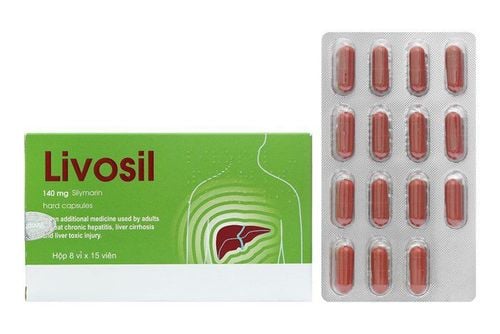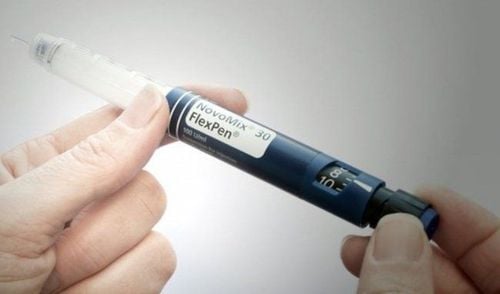This is an automatically translated article.
The article is professionally consulted by Master, Doctor Nguyen Thi Ngoc - General Internal Medicine - Endocrinology - Department of Examination & Internal Medicine - Vinmec Central Park International General Hospital; Master, Doctor Nguyen Thi Nhat - Infectious Diseases - Department of Medical Examination & Internal Medicine - Vinmec Hai Phong International General Hospital.Sugar is the common name of chemical compounds belonging to the group of carbohydrates, which play a role in metabolism and provide energy for the body. However, excess sugar will cause health problems such as obesity, diabetes, heart disease, weakened immune system...
1. The role of sugar with the human body
There are 3 main types of sugar including:Simple sugar: Simple sugar, also known as refined sugar. The composition of simple sugar includes only one sugar molecule such as fructose, glucose... Double sugar: The composition of double sugar consists of 2 sugar molecules such as: sucrose (including fructose + glucose); lactose (consisting of galactose + glucose); maltose (consisting of glucose + glucose). Polymolecular sugar, also known as complex sugar, consists of 2 or more sugar molecules. Sugar is not only a sweet-tasting spice used to mix water, process food, bake cakes... Sugar also provides important nutrients for the body such as vitamins B1 and B2, vitamin C, inorganic salts, and iron. , organic acids ... have a role in metabolism and provide energy for the body. However, if the amount of sugar is tolerated too much or too little, it can cause harm to the body.
When the body tolerates too little sugar, it can lead to hypoglycemia, decreased energy, weight loss, fatigue. On the contrary, when the body tolerates excess sugar, it can increase blood sugar, which is a risk for diabetes, heart disease, overweight, obesity, weakened immune system....

Khi cơ thể dung nạp thừa đường có thể làm tăng lượng đường trong máu.
2. What will happen to the body if there is too much sugar?
If you eat a lot of sugar for a long time, your body will have to face dangerous health problems including:
Overweight, obesity: Excess sugar inhibits fat burning cells and increases insulin levels. metabolic disorders in the body. Besides, sugar is also a factor that increases the hunger hormone (Ghrelin hormone) causing the body to crave and accumulate fat, this is the main risk of obesity and overweight, especially in young children. Excess sugar inhibits the production of the hormone Leptin, a hormone that signals to our brain that we have enough sugar and stop eating, so after eating a lot of sweets we have more cravings. Diabetes: Increased sugar levels lead to increased insulin levels in the blood which is the main cause of diabetes. Excess sugar leads to the accumulation of fat in the liver, which affects the beta cells in the pancreas, making it unable to produce enough insulin. Cardiovascular disease: Excess sugar is very bad for heart health, even more harmful than fat. Sugar can damage the heart and arteries, raise insulin levels, increase heart rate and blood pressure, and activate the sympathetic nervous system. People who regularly eat a lot of sugar have a higher risk of heart disease, stroke, and coronary artery disease than those with a balanced diet. Tooth decay: Sweets are the main cause of tooth decay. The bacteria in the mouth take the fructose from the sugar and produce lactic acid that damages tooth enamel and causes oral problems like cavities, bad breath, and more.

Thừa đường gây ức chế tế bào đốt chất béo và tăng lượng insulin.
Weakened immune system: Excess sugar makes the body more susceptible to infections, flu, colds, etc., due to a weakened immune system. Fatty liver disease: Sugar is converted in the liver into lipids, when the body has an excess of sugar, the liver will produce excess lipids, affecting liver function. High insulin levels due to high sugar intake lead to fat accumulation in the liver. Excess sugar is one of the causes of liver diseases, especially fatty liver. Depression: The brain needs a certain amount of glucose and insulin to function properly, but if you have too much sugar in your body, it will overload the brain with glucose and insulin, leading to anxiety, restlessness, and depression. cause of depression. Insomnia: Blood sugar levels can affect sleep. Eating too much sugar and fat while low in fiber will increase blood sugar levels, make the body exhausted and lose sleep. Memory impairment: Elevated sugar and reduced protein intake can impair cognitive function. According to research published in the Journal of Physiology, eating a lot of sugar can slow down the brain causing memory decline. Addiction to sweets: Excess sugar increases the release of dopamine, which stimulates the brain. Addiction to sweets also causes behavioral changes similar to addiction to drugs (cocaine).
3. How much sugar should be added to the body?
Limits of free sugars (including added sugars, natural sugars, syrups and fruit juices....) in the diet as recommended by the World Health Organization (WHO) as following:
Free sugars should be limited to less than 10% of total calories for both adults and children. For the most health benefits, you should consume less than 5%. For example, for an adult, if you consume about 2,000 calories per day, the recommended sugar intake would be less than 200 calories, or about 50g or 12 teaspoons. To protect the body from the risk of cardiovascular disease, diabetes, obesity, immunodeficiency.... by reducing the amount of sugar tolerated in the body every day, you can apply the following measures:
Limit foods containing free sugars such as: Sweets, chocolates, soft drinks, canned juices.... Replace the foods you are using with healthy alternatives such as: Drinking filtered water instead of soft drinks; Add fresh fruit instead of canned fruit juice... Always check the nutrition labels of packaged foods, don't choose foods with sugar as the main ingredient. Besides, healthy lifestyle changes such as regular exercise; drink a lot of water; eat a lot of fiber; get enough sleep; portion control.... are ways to help you improve your health and reduce blood sugar effectively.
Please dial HOTLINE for more information or register for an appointment HERE. Download MyVinmec app to make appointments faster and to manage your bookings easily.













